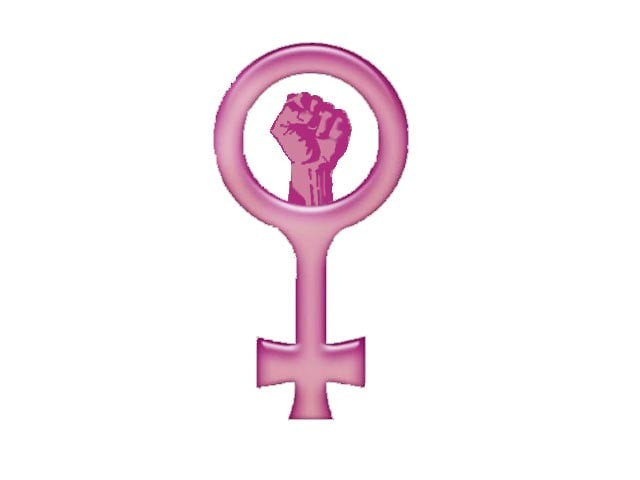Gender, politics and media: ‘Women parliamentarians should be above party line’
Justice Iqbal says there is dire need to encourage women to stand up for their rights.

Gender, politics and media: ‘Women parliamentarians should be above party line’
“Twenty per cent women parliamentarian can make a big difference if they take charge instead of serving only the party interests,” Justice Nasira Iqbal said on Thursday. She said there was a dire need to encourage women to stand up for their rights and fight for a better future.
Iqbal was addressing the participants at in international conference organised by Shirkat Gah and Heinrich Boll Stiftung in the Alhamra Arts Council on Thursday.
The conference titled ‘Women, Religion and Politics’ was arranged to mark the 100th year of the International Women day.
The two-day conference is divided into six sessions, three of which were held on Thursday. Media people, women politicians and women rights activists from Pakistan and several other countries attended the event.
The first session focused on women and religion.
It was chaired by Dr Durre Ahmed, a former National College of Arts teacher. Several research papers were presented by international delegates. The discussion was led by Roshan Dhunjibhoy, the Buddhist Germany executive secretary.
Yesim Arat, an Islamic Women Activist from Turkey, presented her paper on The Gender Equality in Turkey: Implications of a Democratic Paradox?; Magdalena Mosiewicz, the Polish Green Party chairperson, discussed a case study on Catholic Church: Implications on Gender Equality. Dr Hema Goonatilake, author of Budhist Women, Religion and Politics: Ideals and Challenges, read excerpts from her book.
The second session started with the screening of a documentary titled No Excuse for Violence Against Women.
The documentary and the following lectures and discussions revolved around women and politics. This session was chaired by Shahnaz Wazir Ali, the Higher Education Commission chairperson.
Homa Hoodfar, from Iran, and Bushra Gohar, from Pakistan, talked about mobilising women for electoral politics in these countries.
The role, achievements and challenges faced by women politicians remained the topic of discussion.
Gohar, an Awani National Party member, shared her experience as a politician.
She said at a time when music was frowned upon she had demanded that her induction in ANP be greeted with a music concert. She said, the ANP obliged by arranging a folk music event.
Issues related to women and media were discussed in the third session. It was chaired by Brita Petersen, a journalist and the Initiative Free Press director, and Ayesha Tammy Haq, a media person.
Participants in the session discussed Understanding the Ideological Paradigms Conveyed Through Religion Oriented Television Programs in Pakistan.
Sheen Farrukh, one of the speakers said, “Dictators and clerics have exploited the media for their interests. Veena Malik’s case was highlighted to a shameful degree. She is just another working woman, fulfilling the responsibilities of her career.”
Later, Akoja Theatres performed Kaala Medha Bhais at the Alhamra Art Council.
Discussions and presentations of the second day, today will focus on State and The Citizens: The Dynamics of Authorities; Youth, Religion and Education in Pakistan; and Minorities and the State. It will end with a musical performance in Turkish, Persian and Urdu by Zeb and Haniya; a poetry recitation by Kishwar Naheed; and a performance The Bond of Sorrow by Ajoka.
Published in The Express Tribune, March 18th, 2011.



















COMMENTS
Comments are moderated and generally will be posted if they are on-topic and not abusive.
For more information, please see our Comments FAQ